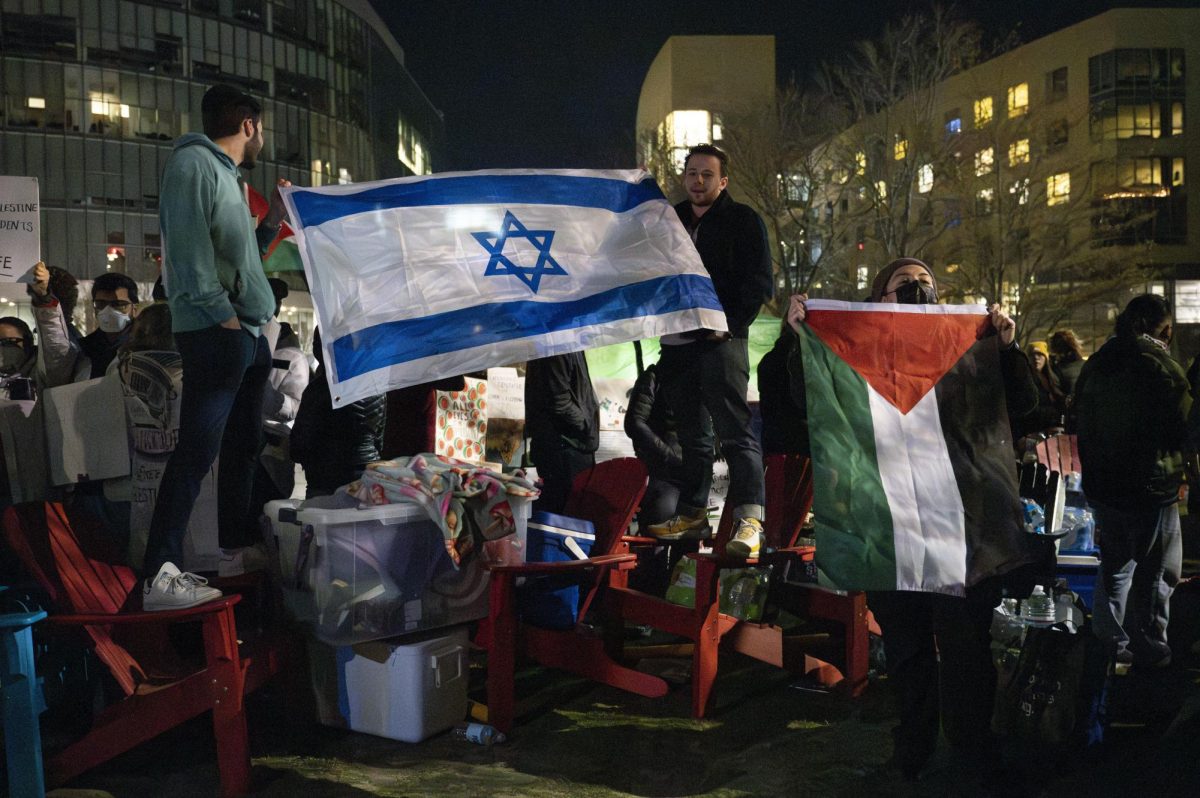“Though much is taken, much abides.”
This verse, taken from Alfred Tennyson’s poem “Ulysses,” serves as an apt description as to where things stand today as we pass the one year anniversary both of the spark that initiated the conflict — Hamas’ Oct. 7 attack — and the reaction that served to intensify it, Israel’s counter-invasion.
Undeniably, much has changed.
Gaza has been reduced to an unrecognizable landscape of rubble, its population grapples with unspeakable loss and Hamas’ leadership has been wiped off the map. Thousands of Israeli soldiers march into southern Lebanon, 1 million Lebanese are displaced, Hezbollah’s arsenal is shrunk by half and its leadership dismantled. Iranian proxies in Yemen, Iraq and Syria target both Israeli and American assets, while Israel and Iran trade direct blows for the first time in their histories.
American B-2 stealth bombers drop bombs over Yemen, U.S. Navy warships intercept Iranian missiles above Tel Aviv and 100 American soldiers deploy to Israel in anticipation of an Iranian retaliation. Israeli-Egyptian ties turn ice cold, the Iranian-Saudi relationship sees a rapprochement and the Palestinian Authority loses its grip over the West Bank. These events are tantamount to a fundamental restructuring of the Middle East.
And yet, one year later, the fundamentals remain unchanged.
Palestinians continue to descend into hopelessness as their existence is threatened. They are left undignified, isolated and, as always, leaderless. Israelis remain fearful as their internal divisions widen, and they are suspicious of those they elected to represent them. American policy toward the region endures despite its unmistakable contradictions and fecklessness, to say nothing of its inability to adjust course when challenged by an unruly ally.
Oct. 7 was a horrific attack, and while it took over a thousand lives, its enduring legacy will be the fundamental reshaping of the Israeli psyche. By shattering half-century old perceptions of national safety, the attack obscured Israel’s ability to adequately evaluate, react and strategize. This attack was so extreme, so unexpected and so widespread in its individual impact — it’s said that every Israeli is just two degrees of separation from knowing a victim — that the default response was to characterize the threat as existential.
When facing down ultimate peril, weakness invites calamity, and strength — however loosely and vaguely defined — becomes the sole objective. If the alternative is extinction, then all action is justified; allies urging caution are deemed foes, world opinion turns into an irrelevant afterthought and retribution gets redefined as a quest for rectification.
Nevertheless, Oct. 7 was not an existential threat to the state of Israel. But through fear and desperation, a dangerous combination not subdued by a responsible leadership but instead stoked by the Israeli prime minister and his cabinet, the stakes in which these wars are being fought continue to be framed as ones in which “Israel fights for its life.”
By externalizing Israel’s many internal challenges, the Israeli government is frantically postponing introspection. This is by design. Once questions begin to mount about who bears responsibility for the intelligence failure that led to the Oct. 7 attack, or about what it might mean for the integrity of a government to routinely undermine the hostage release efforts of its own citizens, the real existential threat to the state of Israel — its inner divisions — will only deepen.
Similarly, the Biden administration’s aversion to self-reflection and self-correction is undermining America’s interest in avoiding a regional war, a position they proclaim to so strenuously endorse. Empty rhetoric undermines global legitimacy, inaction begets further regional turmoil and rudderless leadership persists where unyielding management is required.
Thirty years ago, the United States played an invaluable role in ending the war in Bosnia — American diplomats drafted the agreement, used military force to bring all sides to the negotiating table and through sheer conviction brought an end to a horrifying conflict that would re-cement the United States’ place as a European power for the foreseeable future.
Peace was accomplished then not through a selfless initiative on the part of either warring side — both of whom would have benefited from an agreement — but by a forceful American effort that gave both enemies no choice but to sow for peace.
These were the actions taken by statesmen of the highest caliber; leaders who had the foresight, stamina and tenacity to neglect the easy path fueled by vengeance and instead choose the arduous one paved by duty.
One year into this now regionalized Middle Eastern war, what is most desperately needed is what all involved parties so obviously lack: statesmanship.
Jack Masliah is a fourth-year political science and philosophy combined major and columnist for The News. He can be reached at masliahlitchi.j@northeastern.edu.
The Huntington News is dedicated to serving the Northeastern University community with original, professional reporting and creating an environment in which student journalists can learn from one another. Support an independent, free press at Northeastern University with your donation today.












